Animals
-
 Animals
AnimalsScientists Say: Zooplankton
These plankton are tiny, but don’t let that fool you. They are predators, too.
-
 Brain
BrainWoodpecker brains host protein linked with human brain damage
Woodpeckers peck with a force great enough to give people concussions. Now a study shows that birds, too, may suffer some brain damage.
-
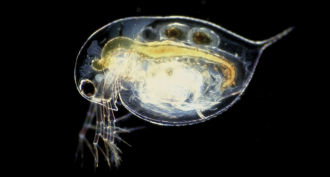 Animals
AnimalsRising carbon dioxide could leave tiny lake dwellers defenseless
Rising carbon dioxide in freshwater lakes may change how predators and prey interact.
-
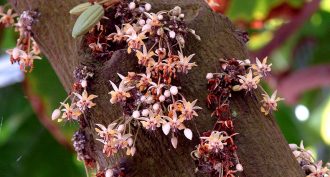 Plants
PlantsBlooms on ‘chocolate’ tree are crazy-hard to pollinate
The cacao trees must be pollinated or those seeds that give us chocolate will never form. The rub: The trees’ flowers challenge all but some of the tiniest pollen-moving insects.
By Susan Milius -
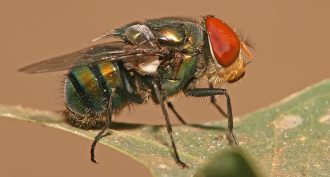 Animals
AnimalsBlowflies keep their cool with drool
Personal air conditioning the blowfly way: Dangle a droplet of saliva and then swallow it.
By Susan Milius -
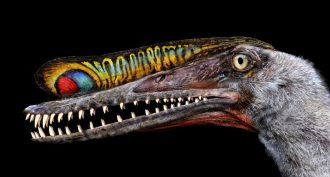 Fossils
FossilsJackpot! Hundreds of fossilized pterosaur eggs unearthed in China
A trove of fossilized pterosaur eggs and embryos offer tantalizing clues to the winged reptiles’ early development.
-
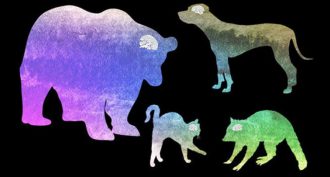 Animals
AnimalsDog wins tally of nerve cells in the outer wrinkles of the brain
Golden retrievers rate at the top for numbers of nerve cells, a study of some carnivores finds.
-
 Animals
AnimalsAnalyze This: Electric eels’ zaps are more powerful than a TASER
Shocking! A biologist reached his hand into a fish tank and let an electric eel zap him. It let him measure precisely how strong a current it could unleash to defend itself.
-
 Animals
AnimalsEscaping narwhals can freeze and flee at the same time
Narwhals’ heart rates plummet while diving quickly to get away from people. The combination may stress the whales as human activity increases in the Arctic.
-
 Animals
AnimalsHumongous land crab dines on remote-island seabirds
A biologist has documented a coconut crab taking out a seabird as part of a study of the huge invertebrates living on an Indian Ocean archipelago.
-
 Animals
AnimalsAlligators aren’t just freshwater animals
It’s time to change the textbooks. Alligators have been seen in salty waters snacking on sharks.
-
 Animals
AnimalsLasers can turn a spider’s silk into sculptures
Spider silk is strong and super-stretchy. Scientists have developed a way to sculpt that material into unusual, micro-scale shapes using lasers.